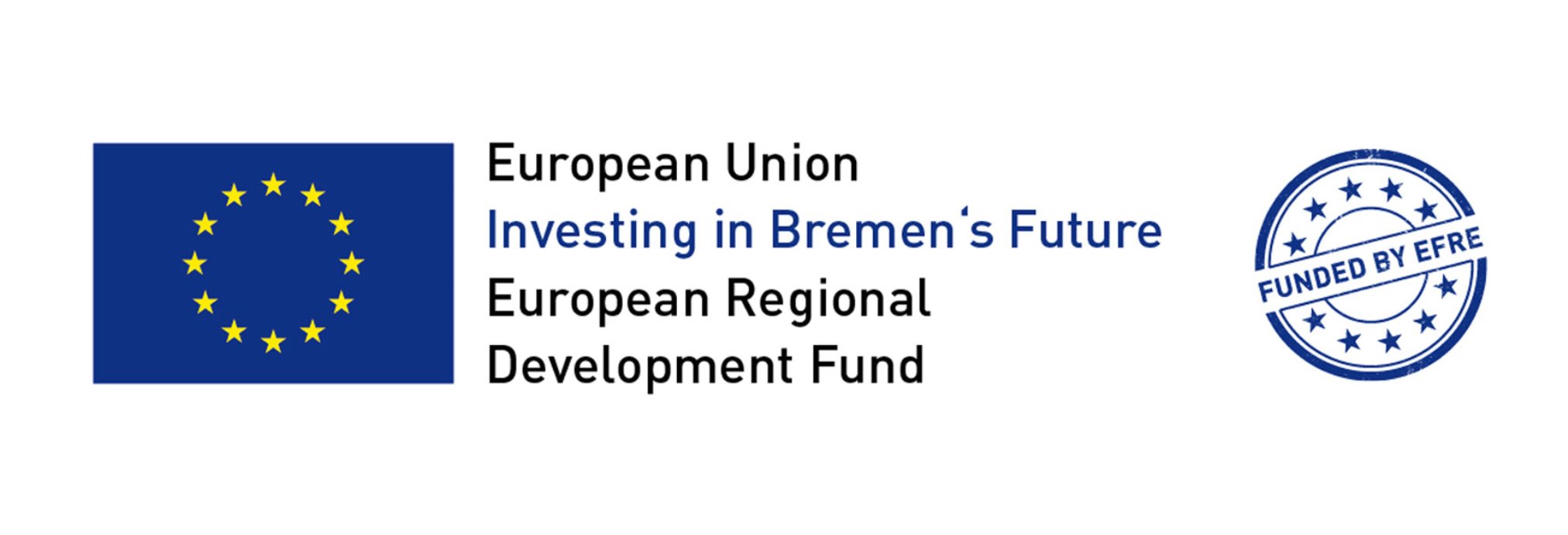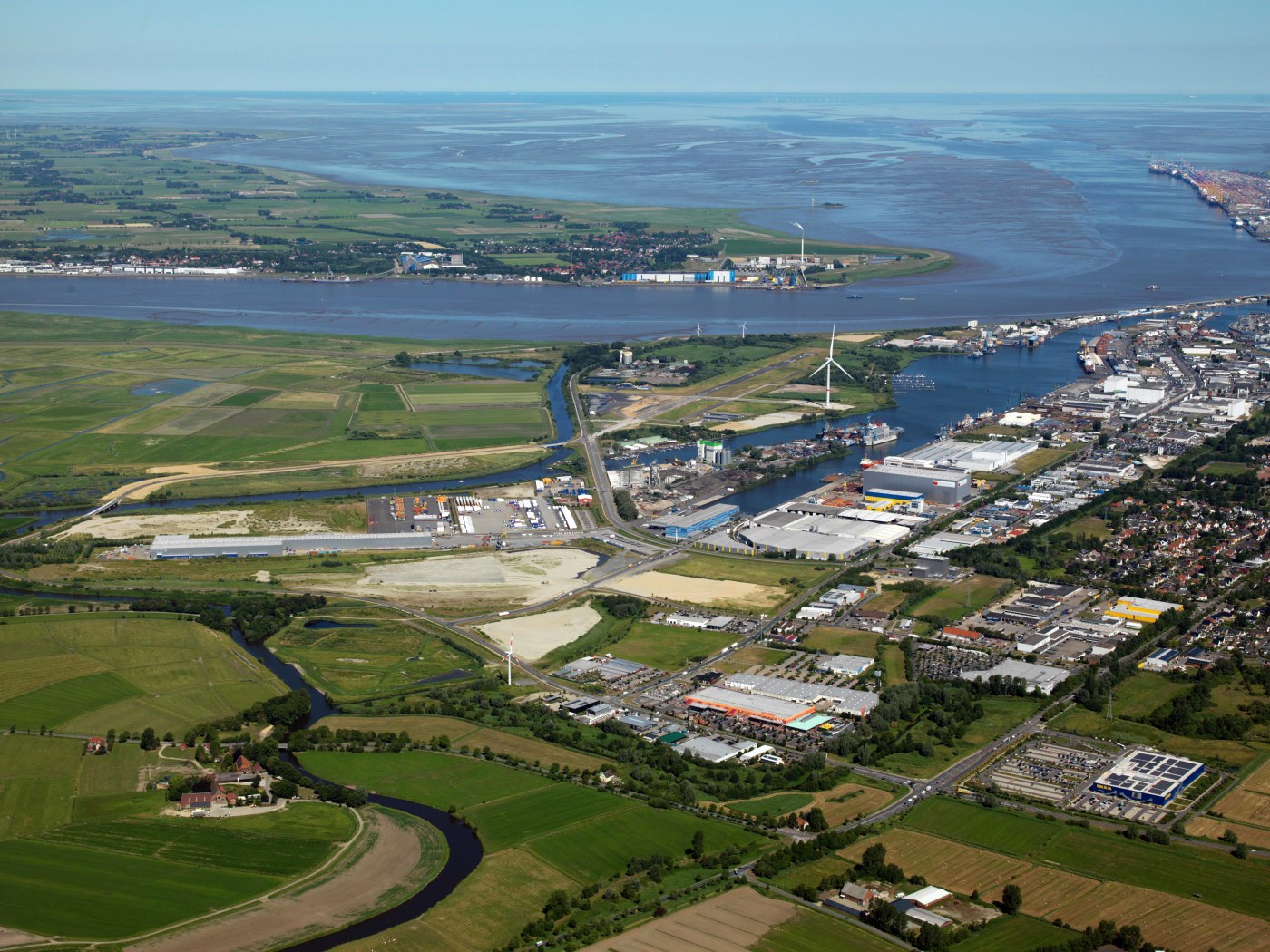“Green Hydrogen for Bremerhaven” project gets underway
The research partners Fraunhofer IWES, Bremerhaven University of Applied Sciences, and the Technologie-Transfer-Zentrum Bremerhaven – will be laying the foundations for a “hydrogen center of excellence” in the maritime city over the two-year term of the project.
The storage of wind energy in the form of hydrogen, the construction of an electrolyzer test field, and the testing of five application scenarios: the “Green Hydrogen for Bremerhaven” pilot project, funded to the tune of €20 million by the State of Bremen and the European Union (EFRE), has now officially gotten underway. The research partners – Fraunhofer Institute for Wind Energy Systems IWES, Bremerhaven University of Applied Sciences, and the Technologie-Transfer-Zentrum (ttz) Bremerhaven – will be laying the foundations for a “hydrogen center of excellence” in the maritime city over the two-year term of the project.
The availability of solar and wind energy varies from day to day. As a result, an energy supply which relies to an increasing extent on renewable energies requires a storage medium in order to compensate for the natural fluctuations and retain surpluses. Hydrogen as a molecular energy store, which is converted back to energy through combustion, is regarded as a central component of the energy transition. Production is also set to start in Bremerhaven in the near future. The AD8 wind turbine in the southern fishing port is to provide the renewable power for the hydrogen production via electrolysis (splitting of water into hydrogen and oxygen) – as such, the hydrogen is produced in a CO2-neutral manner, making it “green”.
The establishment of an electrolyzer test field is not motivated exclusively by climate goals, but rather also promises major structural policy stimuli and the development of expertise for a high-growth future market.
Bremen’s Senator for Science and Ports, Dr. Claudia Schilling, emphasized, “We want to convert Bremerhaven into a center of excellence for hydrogen. The overriding goal of this project is to develop hydrogen production and hydrogen applications so as to render them competitive. In doing so, we will also push forward with the development of the Lune Delta sustainable business park and the establishment of the green economy in Bremerhaven.”
According to Bremen’s Senator for the Economy, Labor, and Europe, Kristina Vogt: “This project is a further milestone in Bremen’s hydrogen strategy. The applied research in Bremerhaven provides important impulses for further hydrogen projects in the federal state of Bremen. I am delighted that the consortium’s project application has proved successful.”
With the project now underway, preparations for the construction of an electrolyzer test field on the site of the former Luneort airfield can also commence. An impressive €16 million in national and ERDF subsidies will be invested in the development of 2 MW of electrolysis output and the preparation of a further 8 test pads for a total of up to 10 MW in electrolysis output. Synergies result from the proximity to the adjacent Fraunhofer IWES Dynamic Nacelle Testing Laboratory (DyNaLab): Connection to one of the world’s most powerful dynamic power grid emulators makes it possible to examine the impact of power supply fluctuations on the electrolyzers and determine their electrical properties. Deputy Director Fraunhofer IWES, Prof. Dr.-Ing. Jan Wenske, explained, “We will test and optimize the procedure for direct electrolysis with wind energy in the megawatt range independent of the manufacturer.”
Our research partners, the Bremerhaven University of Applied Sciences and ttz Bremerhaven, will also commence their activities with the start of this project. Applications in the fields of logistics and transport as well as the food industry will be examined to establish whether hydrogen will be able to replace fossil fuels at least to some extent in the future. “A wide range of heating and cooling processes are involved in food production and they are associated with high energy consumption. We envisage huge potential savings here and regard the use of hydrogen as a genuine alternative,” outlined Markus von Bargen, Technical Director at ttz Bremerhaven. “The Fraunhofer IWES will test the operation of an offshore measuring buoy. The energy required for continuous data recording out at sea will be provided by a fuel cell. By the end of 2021, a number of different systems will have been developed at laboratory scale for the various application scenarios, which will then be further developed into pilot systems,” explained Nora Denecke, Head of Department at Fraunhofer IWES and the project coordinator.
“The aim of the research is to achieve a CO2-neutral supply via hydrogen for a total of four application areas. For example, we want to render alternative fuels for the maritime industry and shipping viable by coupling wind energy and hydrogen,” said Prof. Dr. Carsten Fichter, Professor of wind energy technology and the energy economy at Bremerhaven University of Applied Sciences and the head project manager for the university and ttz Bremerhaven as research partners. The storage and distribution of hydrogen and electrical energy is of central importance here, as it is indispensable for the widespread use of green hydrogen. In this context, Prof. Dr. Uwe Werner of the Institute for Automation and Electrical Technology (IAE) at Bremerhaven University of Applied Sciences explained that the autonomous distribution of hydrogen and electrical current in the microgrid, as a research component of this project, will assume a key role in the energy revolution.
Thanks to close cooperation between the individual project partners and stakeholders in Bremerhaven, a joint hydrogen center of excellence is to be founded here. This center will boost the region through enhanced research synergies and take on a leading position in the development of this new economic sector. “Hydrogen is a key source of energy for a successful energy transition and makes a central contribution to the decarbonization of industrial processes. Within the scope of this project, research and development expertise focusing on hydrogen will be pooled in Bremerhaven in order to tap into new technical hydrogen applications and put these into practice,” explained Prof. Dr.-Ing. Gerhard Schories, Head of the Institute at ttz Bremerhaven.
The test results and operational experience should pave the way for larger-scale application in the future. Even after the end of the project, the electrolyzer test field will provide green hydrogen for customers in the region – up to 1 ton a day is anticipated when operating at full capacity. The colorless and odorless gas will be stored in pressure tanks and can be fed into the gas network. The possible applications range from use for the generation of synthetic fuels for vehicles and as a methane substitute for the gas heating of buildings to as an alternative for fossil resources for industrial use. This project will make a valuable contribution to the supply and marketing of the Lune Delta sustainable business park currently being planned by BIS, a Bremerhaven-based agency aimed at encouraging investment and urban development. “That’s why we were keen to be involved in this project from the word go,” explained Nils Schnorrenberger, Managing Director of BIS. “On the one hand, it provides us with information on how green hydrogen can be used as a sustainable energy source in a business park, which we can then take into account as our business park grows and develops. On the other hand, we will also be approaching interested companies with this research topic. In the future, Bremerhaven will offer ideal framework conditions for R&D work focusing on the storage and economic use of renewables.”
This project is being funded by the ERDF. Further information can be found at: https://www.efre-bremen.de/detail.php?gsid=bremen67.c.1517.en
More info on the project here: https://wind-wasserstoff-bremerhaven.de/


